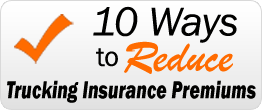FMCSA data show that cargo shifts are one the leading causes of heavy truck accidents. The results can be devastating – damaged truck and cargo loss, other vehicles on the road endangered, heavy injuries or even death. Such disastrous crashes can be avoided if the people responsible for the secure loading of the truck do their job.
Who Bears Responsibility?
But whose job is it actually to ensure that the truck is loaded right and thus eliminate catastrophic cargo shift accidents? Who is it that the victims in a cargo shift crash may have a claim against? A lot of aspects should be given serious consideration when establishing legal liability. The easiest answer is – those who load the freight should be held accountable. In reality, however, both truckers and shippers may be responsible for negligent loading and incorrect securing of the freight.
Why Are Load Shift Incidents Occuring?
The problem with cargo shift lies in part in the very nature of commercial haulers. Large trucks have a very high center of gravity. This, combined with the fact that the cargo is the heaviest part of the truck, makes them likely to jackknife or roll over in the event of cargo shift. When the truck moves, maneuvers, speeds up and stops, the force of the movement is transferred to the load. If not properly loaded, tied down and secured, the freight can shift and cause the whole truck to turn over.
How to Avoid Load Shift Accidents
It is the obligation of the trucker to take part and control the loading of the trailer. In addition, drivers should be vigilant about any strange and unusual behavior of the truck that may be caused not by a mechanical failure but by the shift of an incorrectly secured and unbalanced cargo.
Who is Liable for Damages Caused by Improper Loading of Cargo?
The safety of the trucking industry is largely regulated by the U.S. Department of Transportation and its administrative agency, the Federal Motor Carrier Safety Administration. FMCSA’s regulations stipulate that the trucking company and the drivers are responsible for the safe operation of the truck and trailer. Unfortunately, the regulations do not apply to consignors or consignees, i.e. the people who ship or receive cargo on trucks.
The primary duty of the trucking companies is to take care of the freight they carry. Therefore, they should control and inspect the loading of the truck before each trip. If shipments observed by the driver during loading are lost or damaged during transportation, the driver and the trucking company are ultimately responsible. In some cases, however, the truck driver does not witness and/or participate in the loading process, even if he/she is present on the dock. In other cases the driver is not even allowed on the loading dock. Very often, it is the shipper who loads the truck, takes care to correctly secure the cargo and seals the trailer doors. This procedure is commonly known in the trucking industry as Shipper Load and Count and is noted as SLC on the bill of lading. In such situations, the shipper bears full responsibility for the proper loading of the trailer and is legally liable for losses, damages and injuries if the cargo shifted or fell. Not only the victims in other cars on the road affected by the load shift crash but the truck driver also may have a claim against the shipper when transporting a SLC shipment.
The same regulations are valid when the cargo is unloaded or in transit. If the shipper loaded and secured the cargo, and sealed the trailer doors, the trucking company generally is not liable for injuries caused by shifting or falling freight. Same rules apply if or the trailer was loaded in a manner that makes inspection of its cargo impracticable. If a trucking company driver witnesses and/or participates in the loading process and secures the freight for transport then the trucking company could be held liable for any shifting or falling freight losses.



